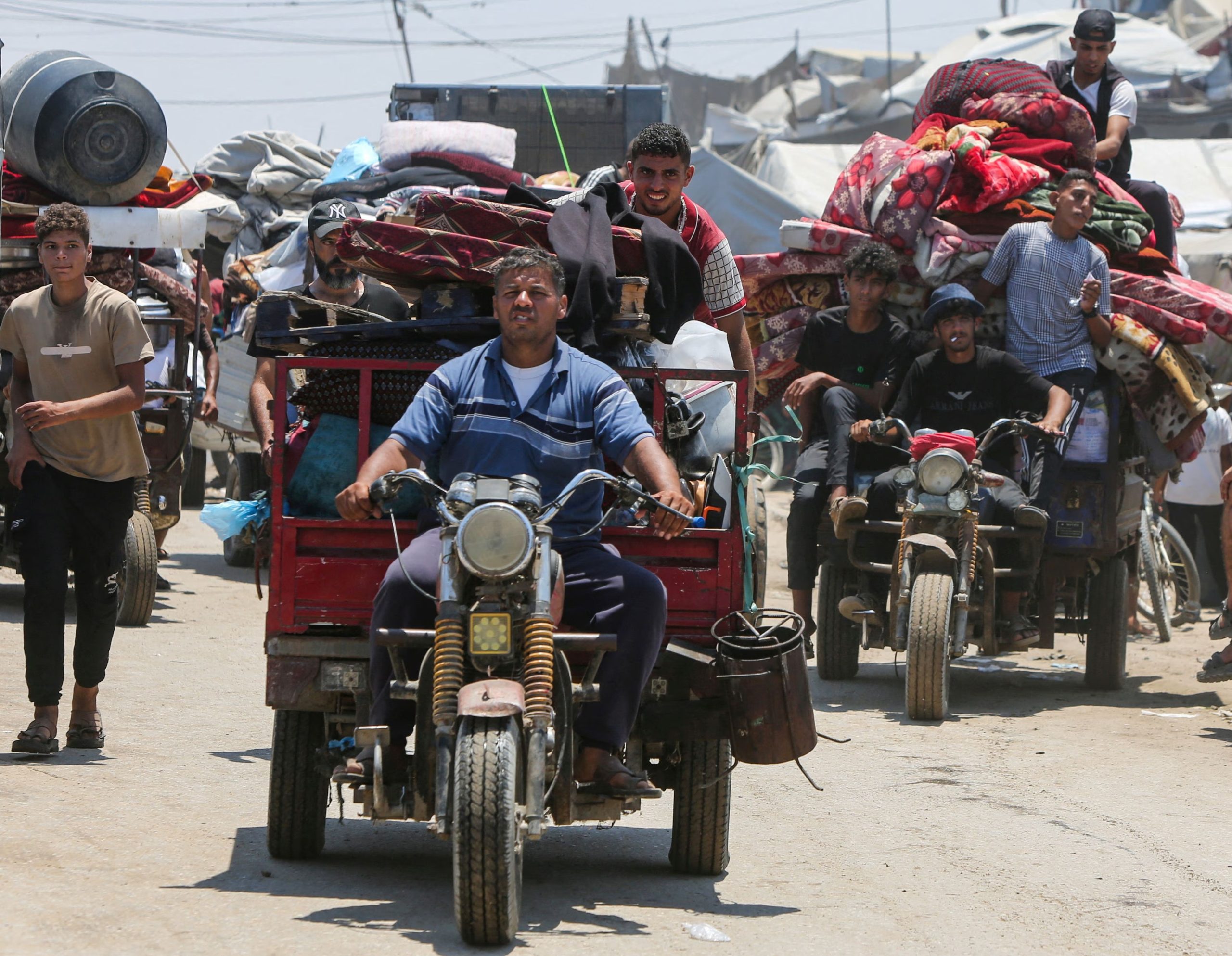The Gaza Strip has long been at the epicenter of conflict and humanitarian concern.
Local media reports say since March 2, the enclave has faced a stringent blockade imposed by Israel, severely restricting the flow of goods, fuel, and essential supplies.
Although some restrictions were partially eased after May 19, the population, already vulnerable from years of conflict and economic hardship, remains in a precarious state.
The United Nations and various humanitarian agencies have repeatedly warned of the risk of famine and the collapse of basic services.
This is particularly in healthcare, as fuel shortages threaten the operation of hospitals and water treatment facilities.
Recent Developments: Indirect Talks and Fuel Delivery
On July 11, indirect negotiations between Israel and Hamas resumed in Doha, Qatar, with the primary aim of reaching a ceasefire.
These talks, mediated by international actors, come amid mounting pressure to address the dire humanitarian situation in Gaza.
In a significant but limited gesture, Israel authorized a shipment of fuel into the enclave.
This move is notable as it marks the first such delivery since the blockade was imposed in early March.
The fuel shipment, however, is primarily earmarked for hospitals and critical infrastructure.
Humanitarian officials have described the quantity as grossly insufficient to meet the needs of the population, highlighting the ongoing risk to public health and safety.
Hospitals in Gaza have been operating at minimal capacity, with frequent power outages and dwindling medical supplies.
This is reportedly making the delivery a lifeline, albeit a modest one, for essential services.
The EU’s Role and the Preliminary Agreement
The authorization of the fuel shipment was made possible by a preliminary agreement reached between Israel and the European Union (EU) on July 10.
This arrangement is intended to facilitate the “large-scale” delivery of humanitarian aid to Gaza, aiming to alleviate the risk of famine and support the enclave’s beleaguered health sector.
The EU has positioned itself as a key mediator and donor, leveraging its diplomatic and financial resources to broker agreements that can ease the humanitarian crisis.
Despite the announcement, the agreement lacks concrete guarantees regarding the scale, frequency, and security of future aid deliveries.
One of the most contentious issues remains the mechanism for distributing aid within Gaza.
Both Israel and Hamas have expressed concerns about the potential diversion of supplies, and no clear framework for monitoring or oversight has been established.
This ambiguity risks undermining the effectiveness of the aid and could become a flashpoint in ongoing negotiations.
Humanitarian Concerns and International Response
Humanitarian organizations have welcomed the fuel delivery but continue to emphasize its inadequacy in addressing the broader crisis.
The World Food Programme and other agencies have warned that without sustained and unhindered access for aid convoys, the threat of famine will persist.
The blockade has not only restricted fuel but also food, medical supplies, and other essentials, compounding the suffering of Gaza’s residents.
The international community, particularly the EU, is under increasing pressure to translate diplomatic engagement into tangible relief for Gaza.
The upcoming meeting of the European Union foreign affairs council on July 15 is seen as a critical juncture.
Kaja Kallas, the EU’s chief of foreign policy, is expected to present a suite of measures that could reshape the EU’s approach to the crisis.
These may include enhanced humanitarian funding, diplomatic initiatives to secure ceasefire agreements, and a review of Article 2 of the EU-Israel Association Agreement.
It ties bilateral relations to respect for human rights and democratic principles.
Looking Ahead: Uncertainties and Expectations
While the recent developments signal a potential opening for greater humanitarian access, significant challenges remain.
The lack of clear implementation mechanisms, ongoing security concerns, and the fragility of indirect negotiations all contribute to an uncertain outlook.
The EU’s forthcoming policy decisions will be closely watched, as they may set the tone for international engagement in Gaza for the months ahead.
In summary, the authorization of a fuel shipment to Gaza, facilitated by a preliminary EU-brokered agreement, represents a modest but important step toward addressing the enclave’s acute humanitarian needs.
However, without robust guarantees and a transparent aid distribution framework, the risk of continued suffering and instability looms large.
The international community’s response in the coming weeks will be crucial in determining whether this initial progress can be sustained and expanded to meet the urgent needs of Gaza’s population.







